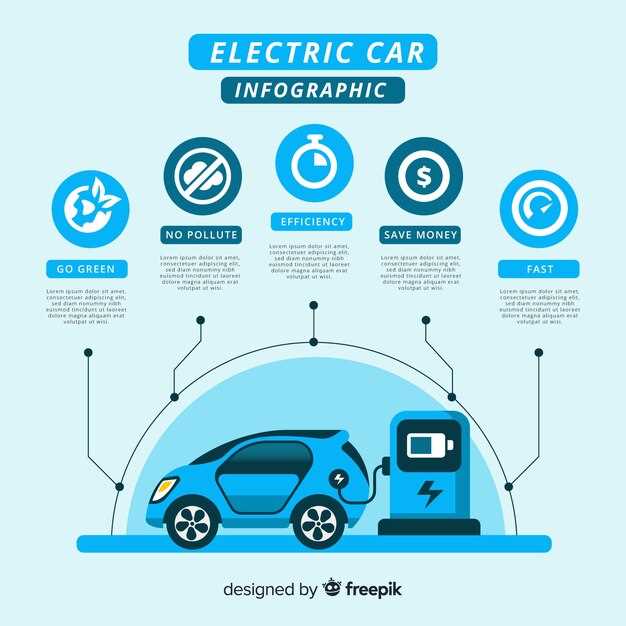
The rise of hybrid cars has transformed the automotive industry, blending traditional gasoline engines with electric technology. This innovation promises significant savings on fuel costs, making hybrid vehicles an attractive option for many consumers looking to reduce their expenses while minimizing their environmental impact.
While the benefits of hybrid cars are compelling, they also come with certain drawbacks that potential buyers should consider. Understanding both the advantages and disadvantages is essential for making an informed decision about whether a hybrid vehicle aligns with one’s lifestyle and financial goals.
In this article, we will delve into the key factors that contribute to the appeal of hybrid cars, including their efficiency, environmental benefits, and long-term savings. We will also examine the challenges, such as higher upfront costs and potential maintenance concerns, providing a comprehensive overview for anyone contemplating the switch to a hybrid vehicle.
Cost Savings: Analyzing Fuel Efficiency of Hybrid Vehicles

One of the primary advantages of hybrid cars is their fuel efficiency, which leads to significant cost savings for drivers. Unlike traditional gasoline engines, hybrid vehicles utilize a combination of an internal combustion engine and an electric motor. This design allows them to achieve higher mileage, particularly in city driving conditions where frequent stops and starts are common.
Hybrid cars are typically rated for miles per gallon (MPG) that surpass their non-hybrid counterparts. For example, many hybrids can achieve over 50 MPG in city driving, while a conventional vehicle might average around 20-30 MPG. This difference can result in annual savings of several hundred dollars, especially for those who drive extensively.
Additionally, the ability to drive on electric power alone at lower speeds can further enhance fuel economy. Many hybrids use regenerative braking, a system that recovers energy during braking and stores it for later use. This feature not only improves efficiency but also reduces wear on brake components, leading to lower maintenance costs.
However, potential buyers should also consider the initial purchase price of hybrid cars. While they tend to provide long-term savings through fuel efficiency, the upfront cost is generally higher than traditional vehicles. It is important for consumers to calculate the total cost of ownership, factoring in savings from gas, maintenance, and potential tax incentives offered for eco-friendly vehicles.
In conclusion, analyzing the fuel efficiency of hybrid vehicles reveals substantial cost savings over time. For environmentally conscious drivers looking for economic advantages, hybrid cars represent a smart investment that not only benefits their wallets but also contributes to a reduced carbon footprint.
Environmental Impact: Evaluating Emissions of Hybrid Cars

Hybrid cars have gained popularity due to their potential for reducing environmental impact. One of the significant advantages is the reduction of harmful emissions compared to traditional gasoline vehicles. These cars combine an internal combustion engine with an electric motor, which helps in achieving better fuel efficiency and lower emissions.
The emissions from hybrid cars are considerably lower due to their ability to switch between the gasoline engine and electric motor. During low-speed driving, hybrids can operate in electric mode, resulting in zero tailpipe emissions. This feature contributes significantly to reducing air pollution, particularly in urban areas where traffic congestion is prevalent.
Another aspect to consider is the overall lifecycle emissions of hybrid vehicles. While they produce less pollution during operation, the manufacturing process of hybrid cars, especially the batteries, can involve high levels of emissions. However, advancements in technology are making battery production more sustainable, mitigating some of the environmental concerns linked to their production.
The savings in fuel consumption also play a crucial role in the ecological benefits of hybrids. With lower fuel usage, there is a corresponding decrease in greenhouse gas emissions, contributing to the fight against climate change. This fuel efficiency can lead to significant reductions in carbon footprints over time, particularly for drivers who frequently commute short distances.
However, it is essential to recognize that not all hybrids are created equal. The environmental impact can vary significantly depending on the model, battery technology, and driving habits. Therefore, consumers should carefully evaluate the emissions ratings and production processes of hybrid cars before making a decision.
In conclusion, while hybrid cars offer substantial environmental advantages regarding emissions reductions and fuel savings, it is crucial to consider their overall lifecycle and production impact. Continued innovation in this field has the potential to further enhance the environmental benefits of hybrid vehicles.
Maintenance Considerations: Comparing Hybrid and Traditional Vehicles
The maintenance of hybrid cars can differ significantly from that of traditional vehicles. One of the primary advantages of hybrids is their reduced wear and tear on the engine due to the use of both an electric motor and a gasoline engine. This dual system often translates to lower maintenance costs over time, as engine components may experience less strain compared to conventional cars, which rely solely on gasoline engines.
However, hybrid vehicles come with their own set of maintenance challenges. The complex technology behind their operation can lead to higher repair costs, especially if specialized knowledge or parts are required. For example, battery replacement can be a significant expense. Traditional cars typically possess simpler hardware and, as such, may attract lower repair costs, especially for common issues.
When considering savings, it’s essential to factor in the longevity of components. Hybrids may save money in fuel expenses, but maintenance savings can vary widely depending on driving habits and the specific model. While traditional vehicles often have established service intervals, hybrids may require more frequent checks on their electrical systems.






